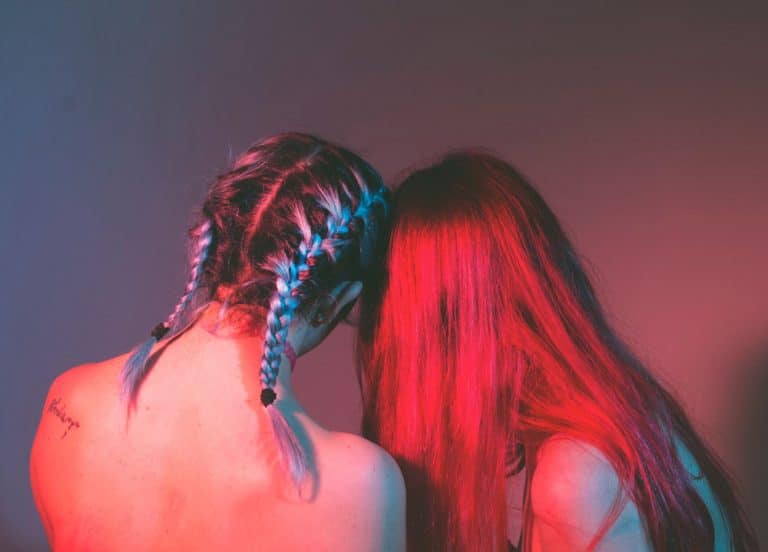The many things that are wrong with ‘YOU’ (the Netflix show, not you)
“Is that really it?”
As I stare perplexingly at the ending credits of the second season of Netflix’s famous series YOU, feelings of uneasiness and frustration marinate in my guts. Although the show has been praised for its disturbingly refreshing views of romantic obsession, the latest season seems lacklustre and lowkey problematic of how it depicts its leading ladies and how its passively reprimands the vile actions of the ‘nice guy’, romantic hero and killer, Joe Goldberg, played by Penn Badgley. Be warned, I am about to ruin all plot twists, characters arches and shocking ending scenes.
Most of you probably already know about YOU, the dark thriller turning classic rom-com tropes on their head, peeling back the rosy veneer and revealing the creepy and sinister consequences of romantic obsession. The handsome leading male character of this love story, Joe Goldberg, turns out to be a stalking, sociopathic serial killer who murders the women he claims to be ‘the one’, and through his narrative allows viewers to understand how, in his mind, he’s still a ‘nice guy’ in spite of, you know, murdering people.
Although the show paints itself as exploring the unsavoury world of female suffering in a journey to finding love, it doesn’t give these women justice. The show has a responsibility to address real-life issues and not belittling situations that people have actually experienced. And yet, YOU seems to disregard female suffering and focuses instead on portraying women as naive, gullible and downright stupid. Perhaps women have fallen under this scope at one point in time, but it’s not the entirety of the female psyche. The women of the show are depicted as needy—desperate for love, desperate for justice or even for attention. Joe’s two love interests are shown as women who couldn’t meet their needs without the help of a man. By doing so, the show’s depiction of women as so desperate for affection that they will ignore red flags is hurtful and patronizing, to say the least.
Watching the show through the eyes of a narcissistic sociopath, it’s hard not to be pulled into his fantasy romance and to think that ‘he’s not at fault, he’s just misunderstood’. Through Joe’s gaze, these women’s identities are crushed under his narrow narrative of who he thinks they should be. That he alone can fix them by mansplaining his way into their hearts. As Love, Joe’s latest paramour and eventual foil, so eloquently said: “You know why this is happening? Because while I was seeing you, really seeing you, you were busy gazing at a goddamn fantasy.”
It’s a dark extreme of the millennial ‘woke’ feminist man, confident that he’s smarter, more progressive and more feminist than anyone in the room. Through all his relationships, he initially becomes infatuated with the idea of them instead of seeing them for who they really are. This is a common problem in most real-life relationships, too. You see the latest love of your life as an idea, as the potential to be better, to be what you wanted, and you forget to actually see who is in front of you.
Although the flashbacks are here to show the viewers why Joe is as fucked up as he is, it ends up being a tool that pushes them to sympathise with him. The narrative is his own perspective, so it’s greatly biased in his favour. Painting himself as the victim pushed into a corner, Joe constantly reminds himself that he’s doing this for them, a constant affirmation that he is a good guy. But we all know he isn’t. Joe is not the misunderstood romantic hero that he thinks he is; he’s a cold-blooded killer who has no qualms turning on the women he claims to love once they don’t fit his narrative or attempt to dismantle the idea of himself he had crafted.
At the end of season two, Love turns out to be the mirror image of Joe—another sociopathic killer—but this plot twist still proves that the show’s treatment of women affects its female viewership. Yes, it’s 2020 and everyone should know the difference between entertainment and reality, but when entrainment lies too close to reality, where can the viewer draw the line? What makes YOU so appealing is that it has a nugget of truth at its centre. All women have felt like Beck at one point, and we’ve all been behaving like Delilah in season two. When there is truth at the core of a show, it’s hard to differentiate between what the viewer should take seriously and what they should not.
It’s scary to realise how many women relate to this show. Is it because we see bits of ourselves in it? Knowing that we, too, have encountered some iteration of Joe? The progressive feminist man who, when he’s called out for his wrongdoing, justifies his behaviour and turns the tables onto the accuser. “You made me do this!” and “I did it for you!” are exactly what these types of men say when they refuse to see their actions as ego-stroking and their saviour tendencies as condescending. They try to ‘save’ to save women without asking them if they actually want to be saved.
It shows men’s narrow filters through which they see women and how women make excuses for the vile actions of men. What is YOU trying to tell us? That this is how life is and always will be? Will the women who are non-consensually used, physically, sexually, or emotionally, ever get their vindication for the wrongs they’ve experienced? Perhaps the show’s success lies in the fact that seeing a girl similar to us on the screen and being able to yell at the screen, “you’re so stupid!” gives us some sort of masochistic pleasure? Perhaps we might as well be screaming that in a mirror?





